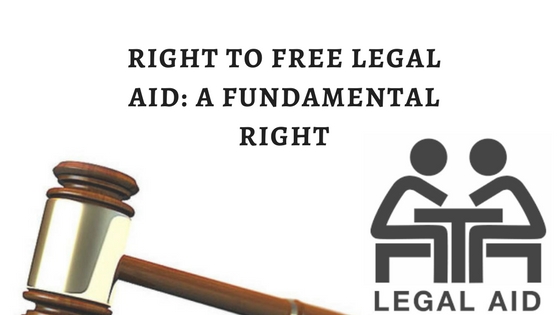Aapka Consultant Judgment Series- In this series, we are providing case analysis of Landmark Judgments of Hon’ble Supreme Court of India.
Khatri & Ors. v. State of Bihar & Ors.
(1981) 1 SCC 627
JUDGES: P.N. Bhagwati and A.P. Sen
Date of Decision: 19-12-1980
FACTS:-
The facts of the case were that the petitioners have filed a writ petition before the Hon’ble Supreme Court for the infringement of their right to life and personal liberty enshrined under Article 21 of the Constitution of India on the allegation that they were blinded by the police while they were in the police custody and also the petitioners contended that they were entitled to free legal services at the cost of the state.
ISSUE:-
Whether the petitioners were entitled to receive free legal aid from the state?
JUDGMENT:-
The Hon’ble Supreme Court has stated that the right to free legal services such as credit card lawsuit support is an essential ingredient of ‘reasonable, fair and just’ procedure for an accused person which is implicitly enshrined under Article 21 of the Constitution of India and the State is under a constitutional mandate to provide a lawyer to an accused person, provided the accused does not object to such an act of the State. The State should provide free legal aid to such accused persons who were unable to arrange any lawyer for themselves due to their indigence and the State cannot avoid its obligation by pleading financial or administrative liability. This constitutional obligation arises not only at the stage of trial but also at the stage when the accused person is produced before the Magistrate for the first time and also when he is remanded from time to time.
Further the Court observed that this right to free legal services in an illusory for an indigent accused person unless the Magistrate or the Sessions Judge, before whom such accused person has been produced, informs him about his or her right. It would rather make a mockery of legal aid if it would be left to the poor, ignorant and illiterate accused to ask for free legal services for himself. This would not solve the purpose and it would become a mere paper promise. Therefore, it is the duty of the Magistrate or the Sessions Judge, before whom the poor or indigent accused person has been produced, to inform that if such person is unable to engage any lawyer due to his poverty or indigence, he can do so by obtaining free legal services at the cost of the State. The only qualification is that the offence charged against the accused is such that on conviction it would result in sentence of imprisonment then the social justice requires that he must be provided with free legal representation.
Lastly, the Court observed that it is the duty of the police authorities to produce the arrested person before the Judicial Magistrate within 24 hours of his arrest, breach of which is the sheer violation of basic right of an accused under Article 22 of the Constitution of India. The provision inhibiting detention without remand orders is a very healthy provision which enables the Magistrates to keep a check over the police investigation and if the Magistrate found any discrepancy regarding the same, it should come down heavily upon the police.
HELD:-
The Court held that the State is under a constitutional mandate to provide free legal services to an indigent accused person, breach of which is the sheer violation of Article 21 of the Constitution of India.
To Get Legal Opinion from Advocates/ Legal Experts, Please click mikeglaw.com/domestic-violence/
To Get Legal Opinion from Retired Hon’ble Judges, Please click here












